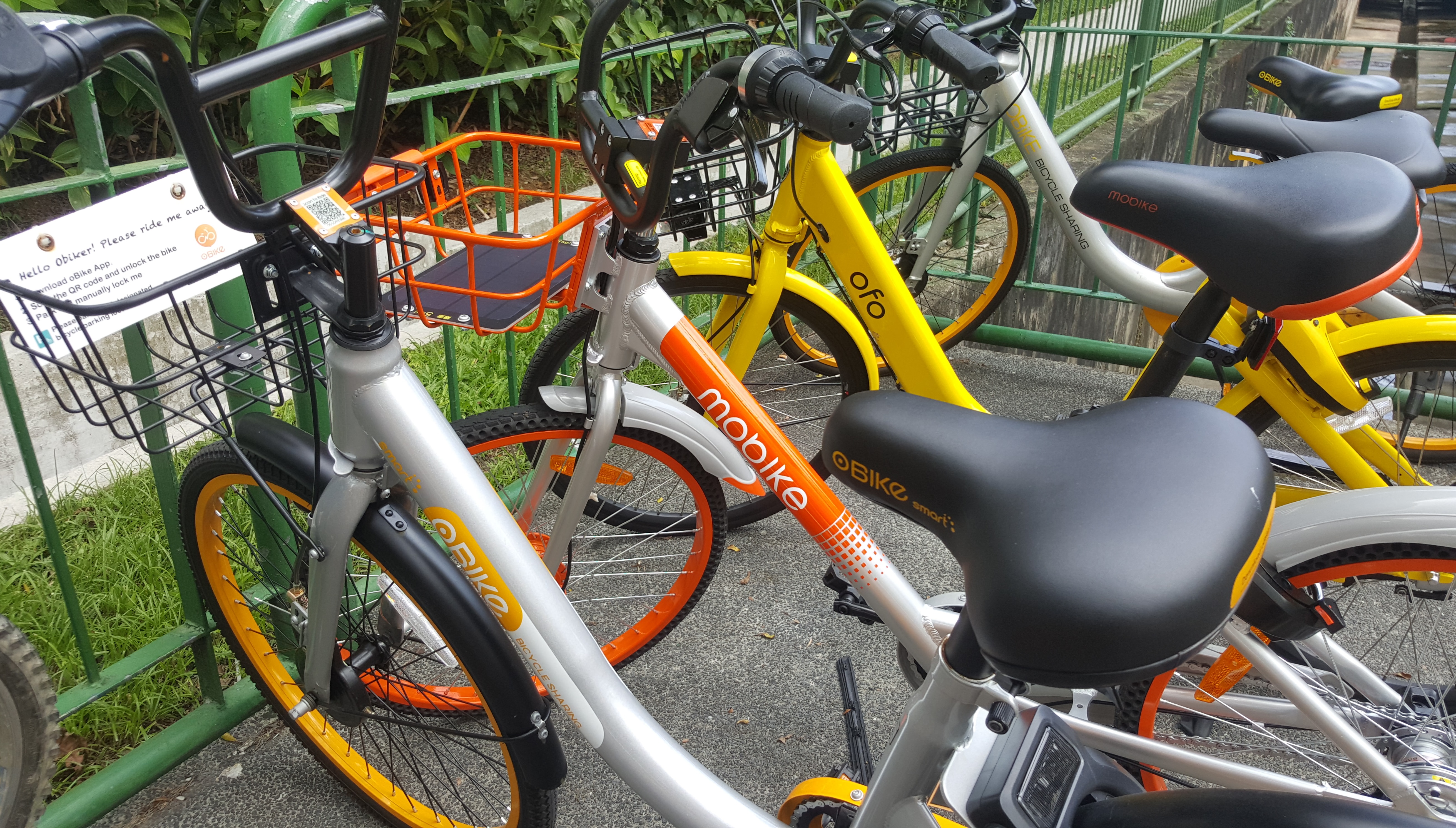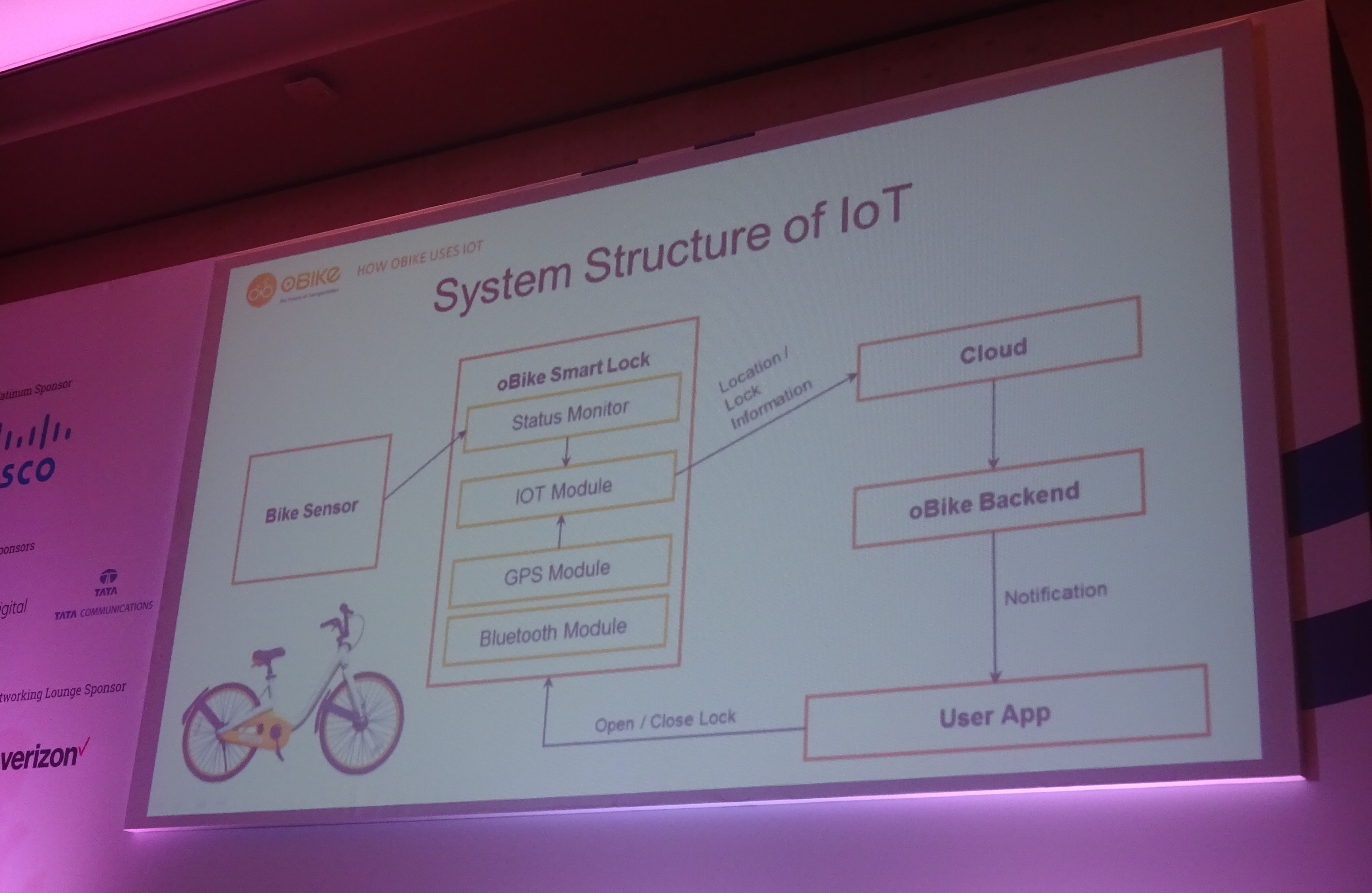

Bicycle sharing has taken off in a big way here in Singapore this year. The brightly colored bikes for hire from the three major players in the business, Mobike, oBike, and Ofo, have become a common sight all over the city-state in just a few months and ushered in an era where people for the first time perceive a bicycle not as an asset to be owned (and maintained) for probably several years, but one to be used only as and when required – I don’t want a bike, I want a low cost, pay-as-I-go, on-demand transportation service.
Singapore’s bike sharing boom is reflective of a global trend. Mobike, which officially launched in Shanghai with just 50 bicycles less than 18 months ago, now counts a fleet of seven million bikes and serves 160 cities around the world. Last month it made its first foray in the US with a 200-bike launch in Washington DC. Also from China is Ofo, which touts more than 25 million daily transactions on its service and plans to have a fleet of 20 million bikes in place in 20 countries by the end of 2017. It made its London launch in September, two months after oBike, a Singapore company, arrived in the British capital.

Dockless bike sharing, as it is known – because bikes do not need to be picked up and returned from set physical locations but are available literally off the street – is only possible because of technologies we’ve come to associate with IoT and works much the same way for all the suppliers:
So in IoT terms, the “thing” is the bike and has sensors and embedded computing/comms to allow interaction with the user and to relay the location and status of the bike (via a wireless network) to the supplier’s cloud application for processing and analysis.
For the wireless network, rapid developments in LPWANs, including LoRa, Sigfox and cellular IoT, mean an increasing number of choices for the bike sharing companies. Ofo, for example, is partnering with Huawei to bring NB-IoT network capability to its bikes; and this September, Mobike announced it was collaborating with Qualcomm and AT&T for its operations in the US. Qualcomm’s MDM9206 global multimode LTE IoT modem, which supports long battery life and connectivity in challenging conditions, will connect each bike to the AT&T cellular network, enabling Mobike to dynamically manage its fleet.
Artificial intelligence is also making inroads to this sector. Magic Cube is the name of Mobike’s AI based data monitoring platform, which can integrate and analyze numerous variables including weather, time of day, location, and crowd patterns to provide predictive models and enhance operating efficiency. The company says it is using the technology for simulation of user patterns, forecasting, balancing supply and demand, predicting parking requirements, and supporting geo-fencing initiatives.

The big data collected from bike sharing operations can be useful for urban planning. Speaking this week in Singapore at the Internet of Things World Asia conference, Edward Chen, co-founder of oBike, illustrated how city planners can analyze shared-bike routes and usage patterns to improve bicycle infrastructure and services such as, for example, placing parking spots in higher demand areas. In Taiwan, said Chen, the Taipei City government has recognized oBike for its efforts in taking actions to support the city-wide intelligent traffic management policy by enhancing the efficacies of 33,000 public bike parking spots.
So what are you waiting for? Bicycling is healthy, green, and with the arrival of low cost, easy-to-use bike sharing services in cities around the world, it’s a convenient choice for that last mile home from the station after work. With the younger demographic, the technology required to make dockless shared bike services work can make for a great first conversation all about the wonders of IoT. And that can only be a good thing.

